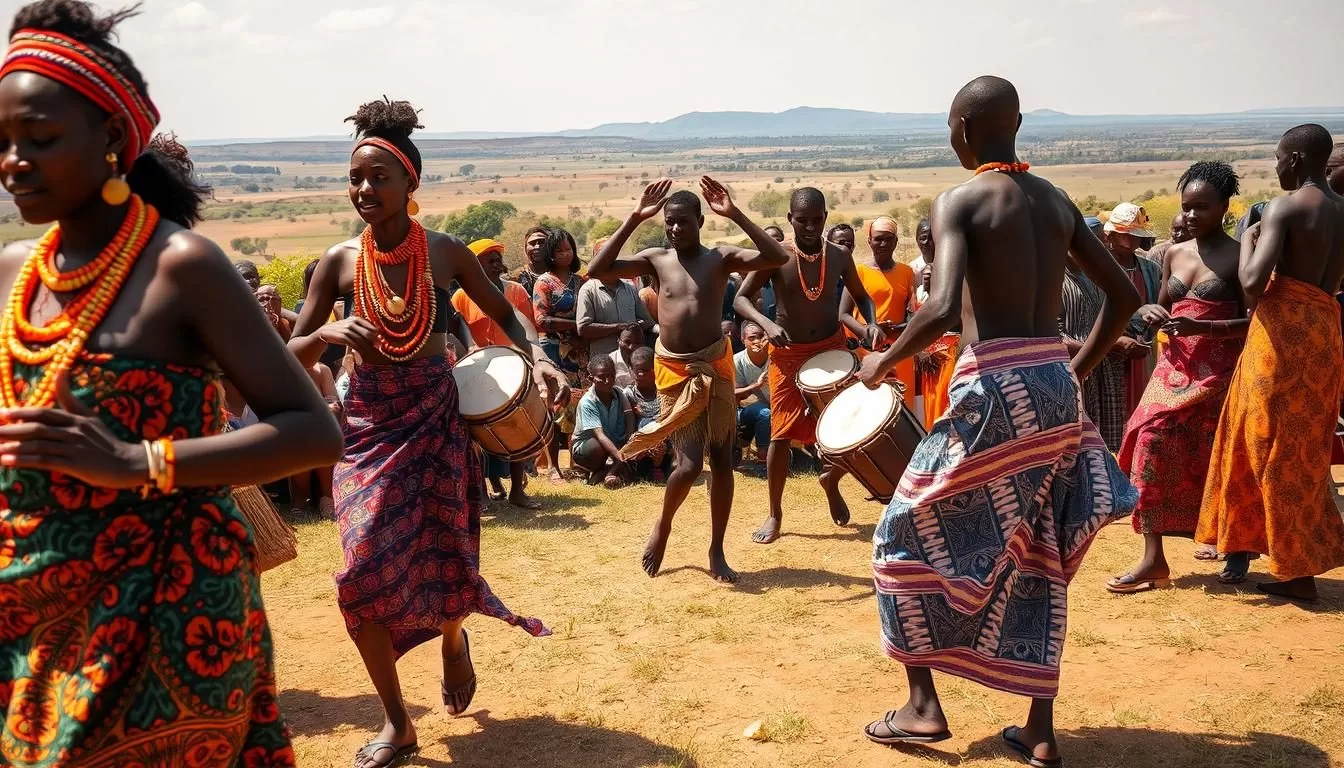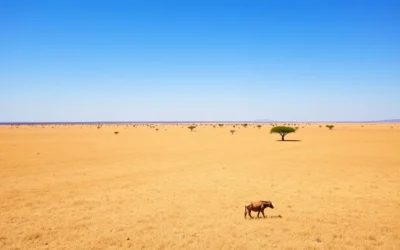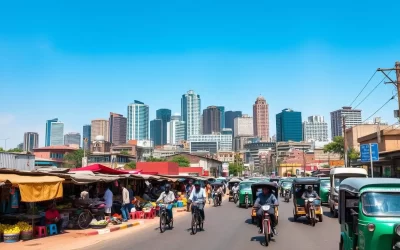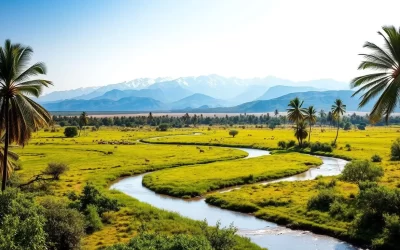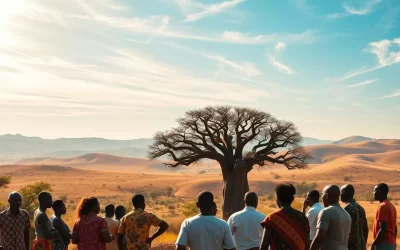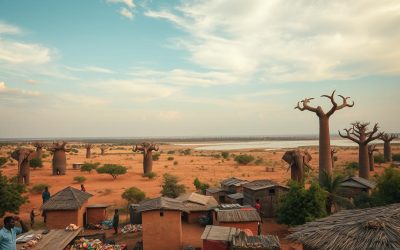✓ Accommodations✓ Flights✓ Rental Cars
As you plan your next adventure, consider visiting the world’s youngest nation, a country with a rich tapestry of cultures waiting to be explored.
Despite its challenging past, South Sudan is home to diverse ethnic communities that showcase their cultural heritage through vibrant festivals and celebrations.
By attending these events, you’ll experience the beauty and resilience of the local people, gaining a unique insight into their traditions and way of life.
This guide will take you through the most significant festivals that highlight the country’s rich cultural identity, providing an authentic travel experience that’s off the beaten path.
Discovering South Sudan’s Cultural Heritage
As you explore South Sudan, you’ll uncover a rich tapestry of cultural heritage shaped by its complex history and diverse ethnic composition. South Sudan, having gained independence in 2011, is a nation with a unique story to tell.
Understanding the World’s Youngest Nation
South Sudan’s formation as the world’s newest country is a result of decades of civil conflict that ended with its independence. The country is home to over 60 different ethnic groups, each with their own distinct languages, traditions, and cultural practices. This diversity has contributed to a rich cultural heritage that is evident in its various festivals and cultural celebrations.
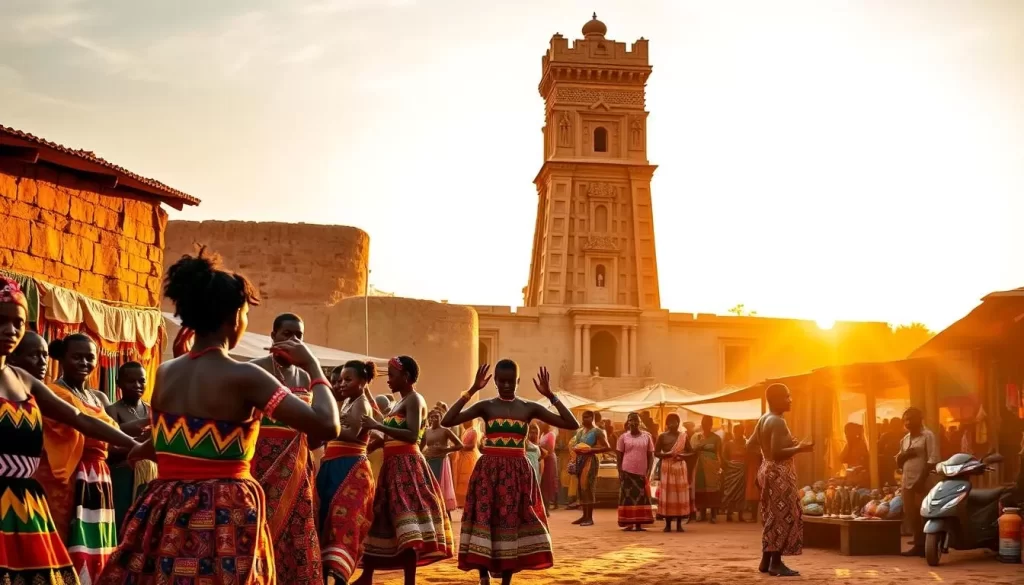
The Role of Festivals in South Sudanese Culture
Festivals play a vital role in South Sudanese society, serving as expressions of cultural identity and community cohesion. These events often combine elements of traditional spirituality, agriculture, coming-of-age rituals, and historical commemorations. By participating in these festivals, you can gain insights into the authentic traditions that have been preserved through generations.
- Festivals showcase the unique cultural heritage of different ethnic groups.
- They provide opportunities for cultural exchange and national unity.
- These celebrations have helped preserve South Sudanese identity through years of conflict.
By experiencing these festivals, you’ll have a chance to witness the vibrant culture of South Sudan firsthand, gaining a deeper understanding of its people and their traditions.
Best Time to Visit South Sudan for Festivals
To witness the rich cultural heritage of South Sudan, understanding the best time to visit for festivals is essential. The country’s tropical climate creates distinct wet and dry seasons, significantly impacting festival scheduling and accessibility.
Seasonal Considerations for Festival Planning
The dry season, from November to April, is the optimal time to visit South Sudan for festivals. During this period, roads are more accessible, and outdoor celebrations can proceed without weather disruptions. In contrast, the wet season, from April to October, can make traveling challenging due to mud-filled roads and flooded rivers.
Festival Calendar Overview
Some cultural festivals in South Sudan are tied to agricultural cycles or seasonal changes rather than fixed calendar dates. For instance, Independence Day on July 9th is celebrated despite falling during the rainy season. Travelers should confirm festival dates before planning trips, as schedules may change due to local conditions or political circumstances.
- The dry season offers better festival access and coincides with wildlife migrations in certain regions.
- Flexibility in itineraries is advisable due to potential festival date shifts and transportation delays.
- Major cultural festivals occur throughout the year, and a month-by-month overview can help travelers plan accordingly.
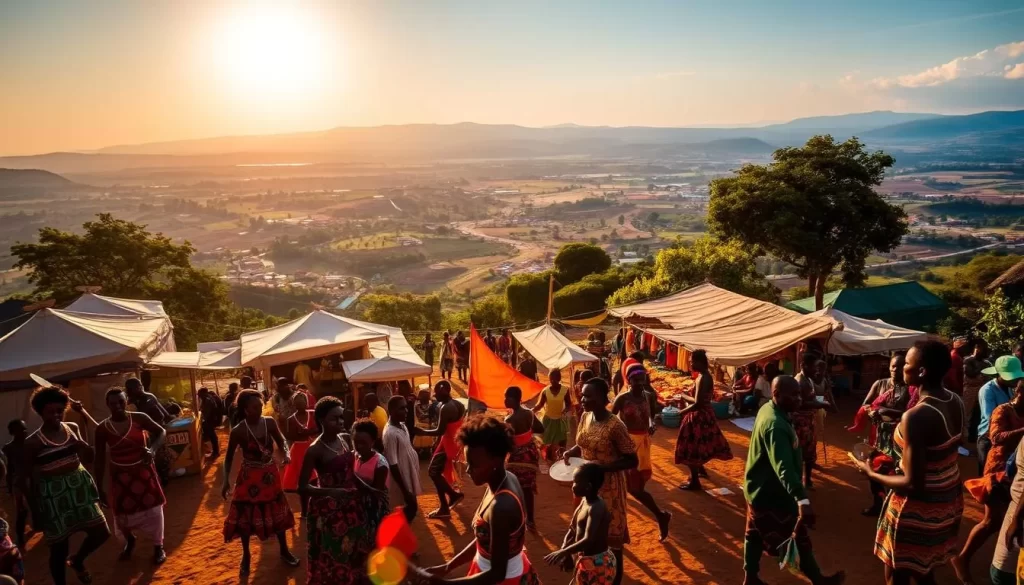
Independence Day Celebrations – July 9th
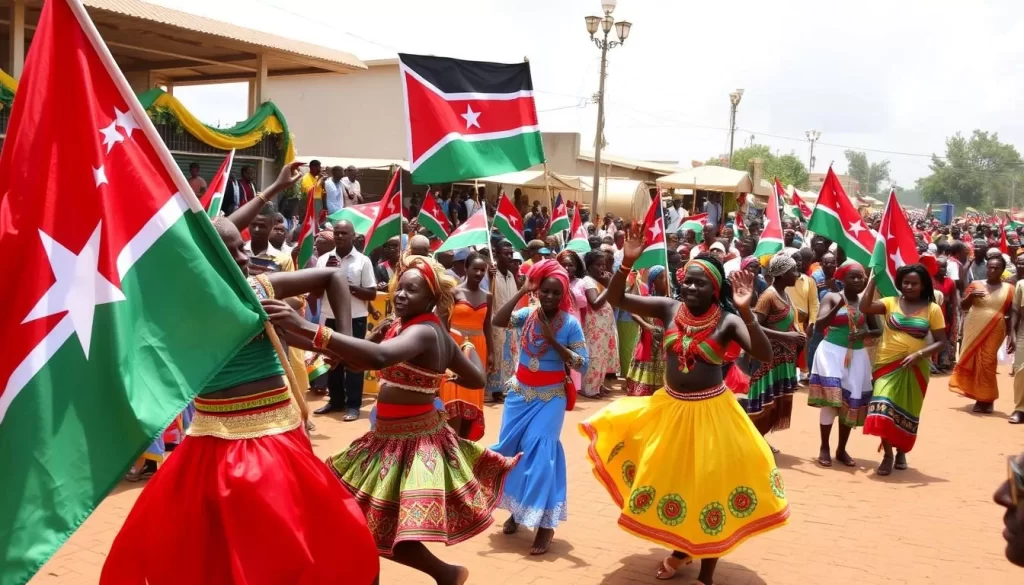
July 9th marks a pivotal day in South Sudan‘s history as the country celebrates its independence from Sudan. This day commemorates the official separation that occurred in 2011, culminating decades of civil war and struggle for self-determination.
Historical Significance and National Pride
The independence of South Sudan is a testament to the resilience and determination of its people. The journey to independence was led by figures such as John Garang, whose legacy continues to be honored. The comprehensive peace agreement and subsequent referendum paved the way for the country’s independence, marking a significant milestone in its history.
The John Garang Mausoleum in the capital city of Juba is a focal point of the celebrations, symbolizing the nation’s respect for its leaders and the struggle for freedom.
Celebration Activities in Juba and Beyond
Independence Day is celebrated with great fervor across South Sudan, with the capital city, Juba, being the epicenter of festivities. The celebrations include military parades, political speeches, and cultural performances that showcase the country’s rich heritage. Beyond Juba, towns and villages across the country participate in the celebrations, adding their unique cultural elements to the national festivities.
How Visitors Can Participate
Visitors to South Sudan during Independence Day can experience the vibrant culture and national pride firsthand. To respectfully participate, visitors are advised to dress modestly, be mindful of photography etiquette, especially around official events, and follow security guidelines. Viewing the parades and performances from designated areas can provide a memorable experience while respecting the official proceedings.
Bor Community Cultural Festival
Experience the authentic culture of South Sudan’s largest ethnic group at the Bor Community Cultural Festival. This vibrant celebration is a testament to the rich cultural heritage of the Dinka people, who are predominantly nomadic pastoralists. Cattle play a significant role in their culture, influencing various aspects of their lifestyle.
Traditional Dinka Cultural Showcase
The Bor Community Cultural Village serves as a living museum, offering insights into the traditional lifestyle and customs of the Bor community. Visitors can engage in various cultural activities, such as traditional agriculture, fishing, and crafts. The festival showcases the importance of cattle in Dinka culture through songs, dances, and ceremonial displays of prized livestock.
Festival Highlights and Activities
The festival is characterized by traditional music and dance performances, including the distinctive jumping dances performed by young Dinka men. The colorful traditional attire, including beaded corsets, headdresses, and body paint, signifies different age groups and social statuses. Visitors can respectfully observe and sometimes participate in activities like traditional wrestling matches, storytelling sessions, and communal meals.
The Bor Community Cultural Festival typically takes place during the dry season in or near Bor town, Jonglei State. It not only celebrates Dinka heritage but also provides economic opportunities for local artisans who sell traditional crafts, jewelry, and textiles to visitors. By attending this festival, you can gain a deeper understanding of the cultural fabric of South Sudan.
Kakwa Cultural Festival
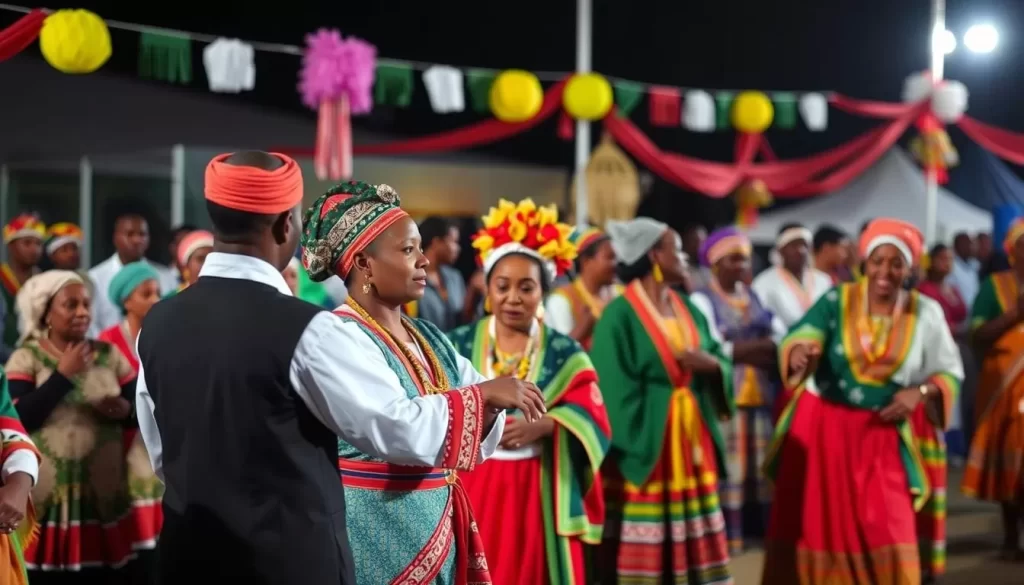
Experience the warmth and richness of Kakwa culture at this unique festival, a cornerstone of South Sudan’s cultural identity. The Kakwa Cultural Festival is a vibrant celebration that highlights the traditions and customs of the Kakwa people, an ethnic group primarily located in the southern regions near the borders with Uganda and the Democratic Republic of Congo.
Celebrating the Kakwa Tribe’s Heritage
The Kakwa people have played a significant role in South Sudan’s development, and their cultural practices are deeply intertwined with those of related communities across national borders. The festival serves as a platform to celebrate this rich heritage, showcasing the history, values, and daily life of the Kakwa tribe through various cultural expressions.
Music, Dance, and Traditional Performances
The festival is characterized by its vibrant musical traditions, featuring unique instruments such as the thumb piano, various drums, and wind instruments specific to Kakwa culture. Traditional dances performed during the festival tell stories about Kakwa history and values, offering visitors a glimpse into the community’s rich cultural tapestry. You can also expect to taste authentic Kakwa cuisine, prepared and shared during the festival, providing a culinary journey through South Sudan’s diverse flavors.
As you plan your travel to South Sudan, consider attending the Kakwa Cultural Festival to visit and experience the region’s cultural richness firsthand. The festival typically spans several days, including opening ceremonies, cultural competitions, and closing celebrations. With the help of local guides or tour operators, you can ensure a respectful and enriching participation in this significant cultural event.
Jonglei State Cultural Festival
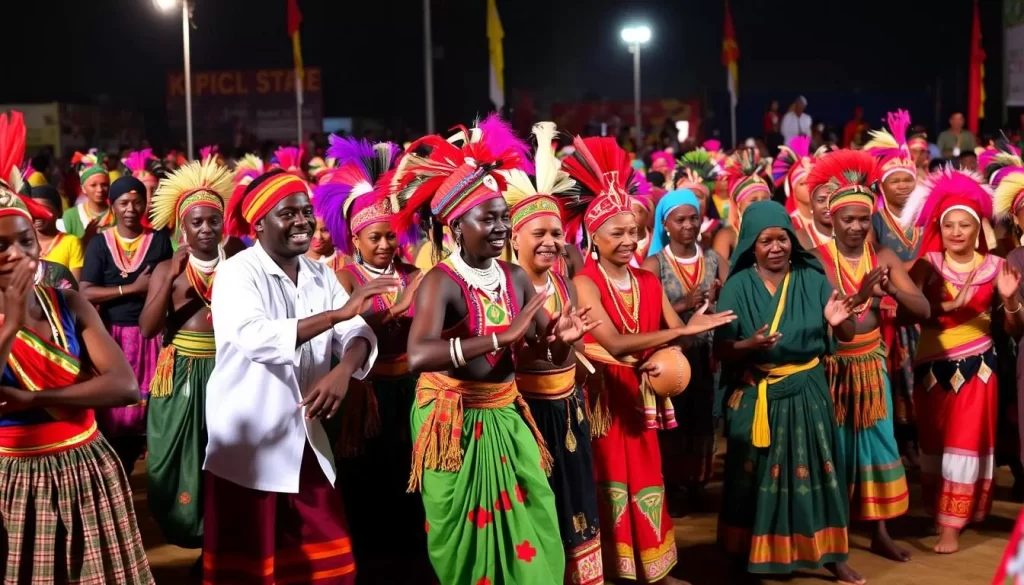
You can experience the rich cultural diversity of South Sudan at the Jonglei State Cultural Festival. This event is one of the country’s most diverse cultural celebrations, bringing together multiple ethnic groups from the largest state in South Sudan.
Multi-Ethnic Cultural Celebration
The Jonglei State Cultural Festival serves as both a celebration of cultural diversity and a platform for peace-building between communities that have sometimes experienced tensions. The festival’s structure often includes delegations from different ethnic communities performing their traditional dances, music, and cultural displays in a spirit of friendly competition and mutual appreciation.
The festival highlights the distinctive cultural elements of major Jonglei ethnic groups, including the Dinka, Nuer, Murle, Anyuak, and Jie peoples. It showcases traditional crafts such as intricate beadwork, basketry, pottery, and metalwork that reflect the region‘s rich material culture.
Festival Location and Visitor Information
The Jonglei State Cultural Festival is typically held in Bor or other major towns in Jonglei State, near natural attractions like Boma National Park, one of Africa’s largest national parks. When planning your visit, consider the festival’s timing, which often coincides with the dry season and the famous wildlife migrations in Boma National Park. This allows travelers to combine cultural experiences with wildlife viewing.
For travelers planning to attend, there are various accommodations and transportation options available to reach Jonglei State. However, it’s essential to consider security advisories when traveling in the region.
Traditional Wrestling Tournaments
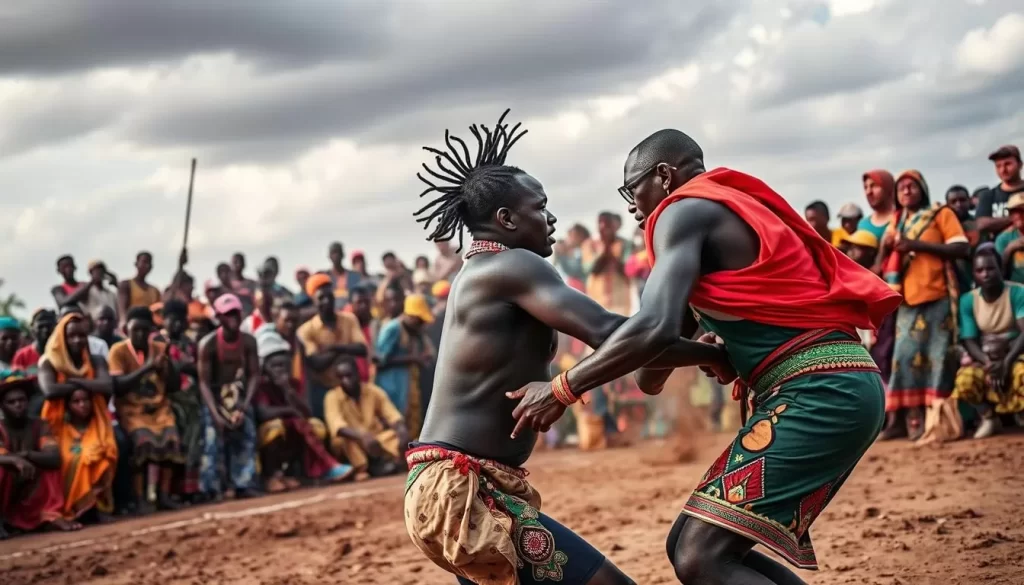
Traditional wrestling in South Sudan is more than just a sport; it’s a celebration of strength, community, and cultural identity. This ancient practice is deeply ingrained in the culture of many tribes across the country, with variations in rules and cultural significance.
The Cultural Significance of Wrestling
Wrestling has historically served as both entertainment and a method for resolving conflicts, building community bonds, and demonstrating physical prowess without bloodshed. The cultural rituals surrounding wrestling matches are elaborate, including pre-match ceremonies, body decoration, and special attire, accompanied by songs and chants that add to the competitive atmosphere.
Successful wrestlers often gain significant status, marriage prospects, and sometimes material rewards, highlighting the social significance of wrestling champions in South Sudanese communities.
Where and When to Watch Traditional Wrestling
You can witness authentic wrestling tournaments in various locations across South Sudan. Regular weekend matches take place in Juba, while seasonal tournaments are held in regional centers. These events often coincide with other cultural celebrations or market days, making them part of a fuller cultural experience for travelers.
When attending a wrestling match, it’s essential to be respectful of local customs and traditions. Understanding the etiquette for foreign visitors, including appropriate behavior and photography guidelines, will enhance your experience.
Nyakuron Cultural Center Events
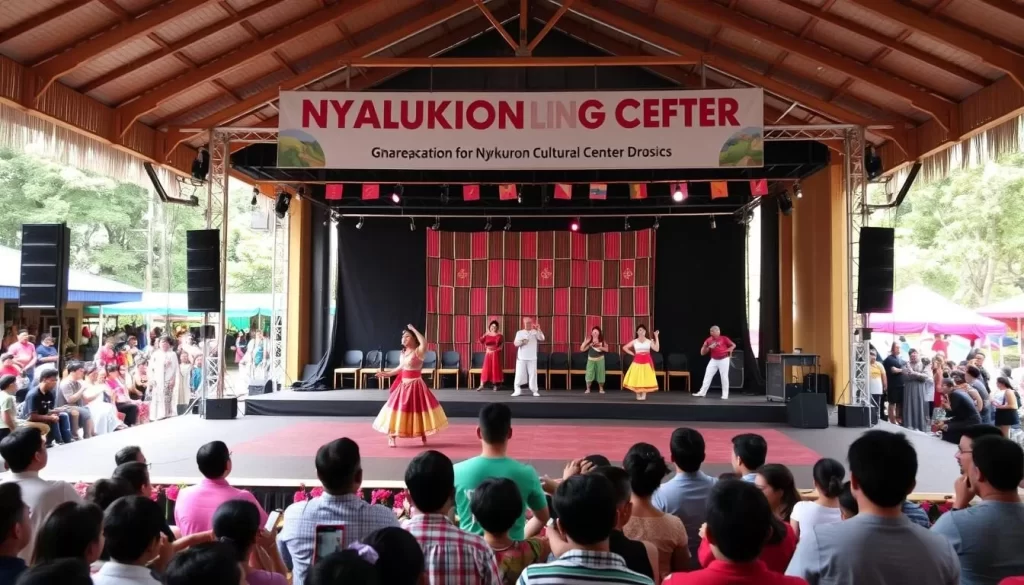
As the premier cultural institution in South Sudan’s capital, the Nyakuron Cultural Center offers a unique cultural experience. Established in 1976, it has been a cornerstone of cultural heritage in Juba, showcasing the diverse traditions of South Sudan.
Year-Round Cultural Performances
The Nyakuron Cultural Center is renowned for its regular cultural performances, which include music, dance, and theatrical presentations. These events highlight the rich ethnic diversity of South Sudan, providing visitors with a deep insight into the country’s cultural fabric. The center’s facilities, including its outdoor stage and auditorium, are designed to accommodate a variety of performances, making it an ideal venue for both local and international artists.
Special Events and Festival Schedule
The center hosts a range of special events and festivals throughout the year, aligning with national holidays and seasonal changes. These events are an excellent opportunity for travelers to experience the vibrant culture of South Sudan in one place. Visitors can plan their trip to Juba around these festivals, ensuring a memorable and culturally enriching experience in this dynamic city.
For those interested in visiting, the Nyakuron Cultural Center is located in the heart of Juba, making it easily accessible. Information on opening hours, admission fees, and the current performance schedule can be found on the center’s website or at the venue itself, helping you plan your trip to this significant cultural hub in South Sudan’s capital city.
Practical Tips for Festival Visitors to South Sudan
Attending festivals in South Sudan is an exhilarating experience that demands a blend of cultural sensitivity and practical preparedness. As you plan your trip to this vibrant country, it’s essential to be aware of the specific requirements and challenges that come with traveling in South Sudan.
First and foremost, ensure you have the necessary travel documents. A valid passport and a visa are crucial for entry and travel within the country. It’s advisable to arrange your visa well in advance through South Sudanese embassies or consulates. Additionally, consider the importance of comprehensive travel insurance that covers high-risk destinations and includes emergency evacuation coverage, given the current security situation in some parts of the country.
Health precautions are also a critical aspect of your preparation. Make sure you’re up-to-date with recommended vaccinations and take malaria prophylaxis as necessary. Bringing personal medications is advisable, as local pharmacies may have limited supplies. When it comes to travel within South Sudan, options are limited; domestic flights and private vehicles with drivers are among the most reliable means of transportation, though road travel can be challenging during certain seasons.
Accommodation options are limited outside the capital, Juba, making advance bookings essential, especially during major festivals. It’s also important to be mindful of cultural sensitivities and appropriate behavior at festivals, including dress codes, photography etiquette, and respectful interaction with local communities. Staying informed about regional security situations and traveling with reputable guides can enhance your safety.
Working with experienced tour operators who specialize in South Sudan can greatly facilitate your festival attendance, ensuring you have the proper permissions and local connections. Don’t forget to pack practical items such as appropriate clothing for hot weather, sun protection, insect repellent, and sufficient cash in US dollars, as credit card transactions are limited outside major towns.
By being well-prepared and informed, you can have a rewarding and enriching experience at South Sudan’s festivals. With careful planning, respect for local customs, and an understanding of the practical aspects of travel in South Sudan, you’re set for an unforgettable trip.
The above is subject to change.
Check back often to TRAVEL.COM for the latest travel tips and deals.
